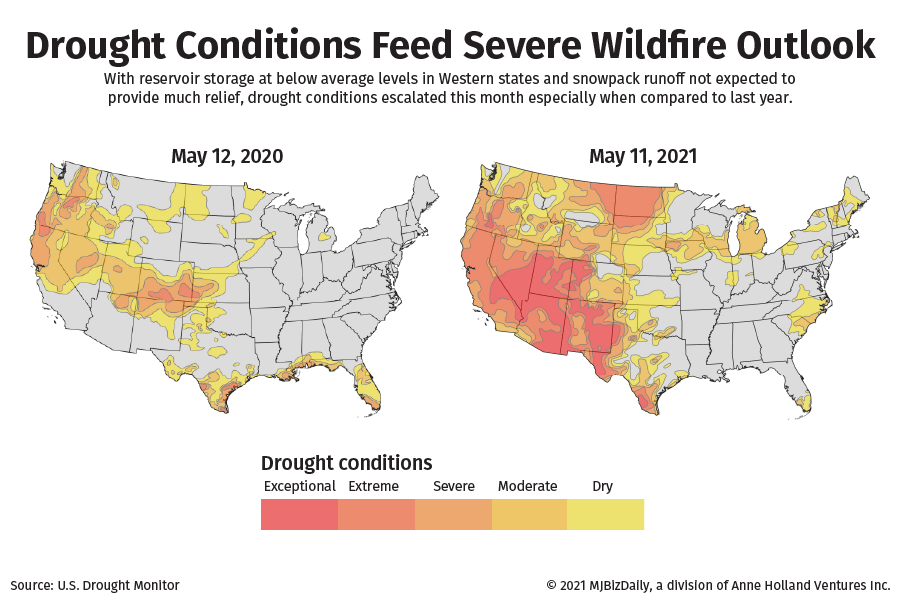The Artist Tree in Koreatown is open for business – finally.
The Los Angeles cannabis retailer – which operates under the holding company TAT Koreatown – received temporary approval from the city to operate in mid-April, nearly 20 months after signing a lease on its 2,200-square-foot property on Western Avenue.
The Artist Tree is one of three marijuana businesses that have cleared the regulatory, administrative and funding hurdles to gain temporary approval to open retail stores under the long-delayed Phase 3 rollout of the city’s social equity program.
L.A. opened the application process for social equity applicants in September 2019.
The three newly opened retailers are among 200 deemed eligible for the coveted social equity retail licenses.
It’s unclear when the other 197 qualified applicants in line for permits will open for business – or if they will at all.
The program has been besieged by red tape, administrative and processing delays, lawsuits and accusations of mismanagement and corruption.
“To pay rent for over a year without income is really hard to do,” said The Artist Tree co-founder Lauren Fontein, who partnered with a social equity applicant on the company’s latest expansion. “Luckily, we are open.”
That’s a declaration few social equity applicants can make in L.A., which runs the nation’s largest marijuana industry social equity program.
The city’s Department of Cannabis Regulation (DCR) in late April disclosed the other two approvals to MJBizDaily: Sunset Business Solutions in Northridge and CannaTrust Group in Echo Park.
A short list of hopefuls
The DCR in December released a long-awaited list of 200 finalists.
But a recent DCR tally indicated most applicants are nowhere near the finish line, with many yet to file relocation documents alone.
According to the DCR:
- Only 63 of the 200 applicants have filed one or more documents for temporary approval of their retail permits.
- Of those, 46 have uploaded the minimum number of documents to trigger a designation that local compliance is underway, a prerequisite to apply for any state cannabis license.
- Of those 46 businesses, only 18 have passed DCR inspection, one of the final requirements for approval. Another four are scheduled.
Cat Packer, the DCR’s executive director, hopes to have at least a quarter of the applicants complete the temporary approval process in the next few months.
“We’re doing everything we can to move these folks through,” she said. “Part of it, we have to wait for applicants to bring us the documents or schedule inspections.”
It’s unclear at this point what will happen to any of the 200 permit slots that go unused, but Packer said currently there are no firm deadlines for all 200 to file the required documentation.
Complicated path forward
The application process is daunting for even the most experienced purveyors, requiring a team of experts, attorneys, designers and more.
“This process has been so complicated and has taken so many resources,” said Fontein, an attorney and industry insider since 2009.
“For someone with little to no industry background and hadn’t done this before, I can’t even imagine how they could ever figure it out and get it done.”
The Artist Tree contracted consultants, security experts, architects and other professionals to help them through both the local and state application processes.
Ryan Brown, another social equity applicant hoping to win a retail permit, has filled out most of his paperwork. But he can’t complete a form requesting an organizational chart, one of several disclosures that require applicants to make business decisions before they’re operational.
Brown doesn’t yet have a management team or business partners, which means he can’t correctly fill out the paperwork and complete the requirements.
“They never gave us any technical assistance. We really don’t know what to do,” said Brown, who wasn’t among the 200 finalists and is pleading for more help from the DCR.
“We don’t have the money to go pay a lawyer to help us.”
Some assistance programs have been rolled out in recent months, including:
- In March, the L.A. County Bar Association, in partnership with the city, launched a pro-bono legal assistance program open to the 200 eligible retail applicants.
- In April, L.A. established the Social Equity Entrepreneur Development (SEED) Grant Program to provide $6 million in financial assistance to verified social equity applicants. The program plans to disperse its first grants in a few months, according to the DCR.
- The DCR recently began hosting webinars to provide updates to social equity stakeholders and help them navigate the licensing process.
Processing delays fuel frustration
Social equity advocate Bonita Money believes the efforts are too little, too late.
Money has helped secure permits for about 30 cannabis companies and assisted hundreds more, including Brown, through a nonprofit she founded in 2018, the National Diversity and Inclusion Cannabis Alliance (NDICA).
The NDICA, which has received more than $1 million in state grants to help those negatively affected by the war on drugs, oversees workforce and economic development programs and provides technical assistance and other services, including record expungement, cannabis education and vocational training.
Money has heard plenty of horror stories about applicants who lost real estate holdings as their applications lingered in the system. And while there have been reforms, it hasn’t been enough, she said.
Before July 2020, when the L.A. City Council overhauled several DCR policies and social equity provisions, applicants were required to hold real estate space in an approved zone.
Now, applicants are required to gain approval on a potential site, rather than hold one, which equates to substantial savings.
That filing still costs nearly $600 though, and all in, most social equity applicants can expect to pay $7,000-$9,000 solely in application fees, according to Money.
That means the entire process remains cost-prohibitive for many of the the eligible 200 retailers, she said.
“They want to be in the industry and don’t want to lose this opportunity, but they can’t afford to go through this process,” Money said. “They can’t spend years doing this.”
Gorilla Rx Wellness Co. has been awaiting a name-change approval from the DCR since February, when the company completed the application and review process, passed DCR and fire department inspections and paid all applicable fees.
“Right now, I’m burning operating capital and money that should be used to hire people in my community who are in desperate need of employment after COVID,” said Gorilla CEO Kika Keith, who also co-founded L.A.-based Social Equity Owners and Workers Association. That group has threatened to file suit against the state in coming weeks over an alleged failure to fully support social equity businesses.
Keith has been paying $12,000 in monthly rent since late 2019 for her storefront in the Crenshaw District/Baldwin Hills neighborhood, a cradle of black commerce and culture in South Los Angeles.
Keith believes the delays have nothing to do with paperwork backlogs or DCR staffing shortages amid the pandemic.
“It has to do with a derelict of duty in their administrative capabilities and processing,” she said. “It’s devastating, and there’s no sense of priority.
“Too many of us have been losing and spending money while waiting on unnecessary DCR delays. When will our concerns become a priority?”
Chris Casacchia can be reached at ccasacchia@hotmail.com.





